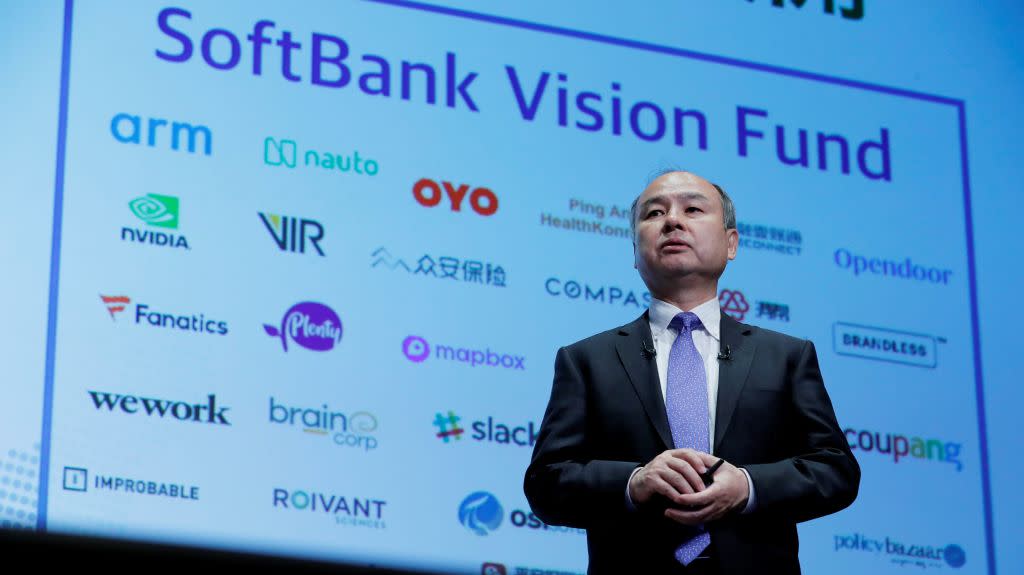Softbank, WeWork’s biggest investor, has lost its appetite for a WeWork IPO

Softbank is having a tough year.
The bet made by the Japanese conglomerate on Uber is looking more disastrous than prescient. In January of 2018, Softbank plowed $9.3 billion into the ride-hail company through a mix of direct investment and secondary share purchases. The value of that stake has since shrunk to about $8.7 billion, $600 million less than Softbank paid, with Uber’s stock down nearly 30% from its $45 IPO price.
Another Softbank investment, Slack, has also struggled as a public company, with its share price yesterday falling below its $26 reference price for the first time. Unlike with its Uber holding, Softbank at least still stands to profit from its Slack investment, since it bought shares in private rounds for well below their current trading price.
Softbank is a Japanese holding company that until a few years ago was best known as a major telecommunications provider. That changed in 2017 when Softbank launched the Vision Fund, a $93 billion fund that took nearly half its funding from Saudi Arabia’s sovereign wealth fund. Softbank has since become an aggressive investor in US tech companies, known for its tendency to pick a single company in a competitive industry and infuse it with hundreds of millions, or even billions, of dollars.
No company is a better example of this than WeWork. Softbank is by far the largest shareholder of the office-space rental company, with a total investment that tops $10 billion. That includes a $2 billion investment in WeWork’s latest private funding round at a $47 billion valuation earlier this year.
But Softbank is reportedly now urging WeWork to shelve its IPO (paywall) after a frosty reception from investors that would value the company at closer to $15 billion to $20 billion, a staggering downgrade from its last private financing round that valued it more than twice that.

WeWork, or The We Company as it is now called, unveiled its filing for a public offering on Aug. 14. Despite cutting all mentions of “community adjusted EBITDA”—a much-mocked financial metric it invented—from its documents, the company received blistering scrutiny for its substantial losses and weirdly close relationship with co-founder and CEO Adam Neumann. Last week, WeWork added a woman to its all-male board and said Neumann would return a $5.9 million payment he had received from the company for use of the trademarked word “We.”
For WeWork, there’s a lot at stake. The Financial Times reports (paywall) WeWork would lose access to a $6 billion loan from a group of banks if it didn’t go public, plus miss out on the $3 billion to $4 billion in new capital it had hoped to raise through the offering.
WeWork, which lost $900 million in the first six months of this year, needs investor financing to pay the bills while it pursues loftier goals, like elevating the world’s consciousness, that seem to require operating at a loss. The company listed $2.5 billion in cash and cash equivalents on its balance sheet as of June 30. “We do not lose money, we invest money in the future,” Neumann told Business Insider (paywall) in May.

For Softbank, the fate of WeWork and its other investments could affect its ability to attract new money from investors as it aims to raise a second Vision Fund (paywall) of $108 billion. On a call with investors in August, Softbank CEO Masayoshi Son defended WeWork’s $47 billion valuation from recent skepticism. “I don’t think that it is overvalued as an enterprise,” he said. “It is a wonderful company.”
Sign up for the Quartz Daily Brief, our free daily newsletter with the world’s most important and interesting news.
More stories from Quartz:

